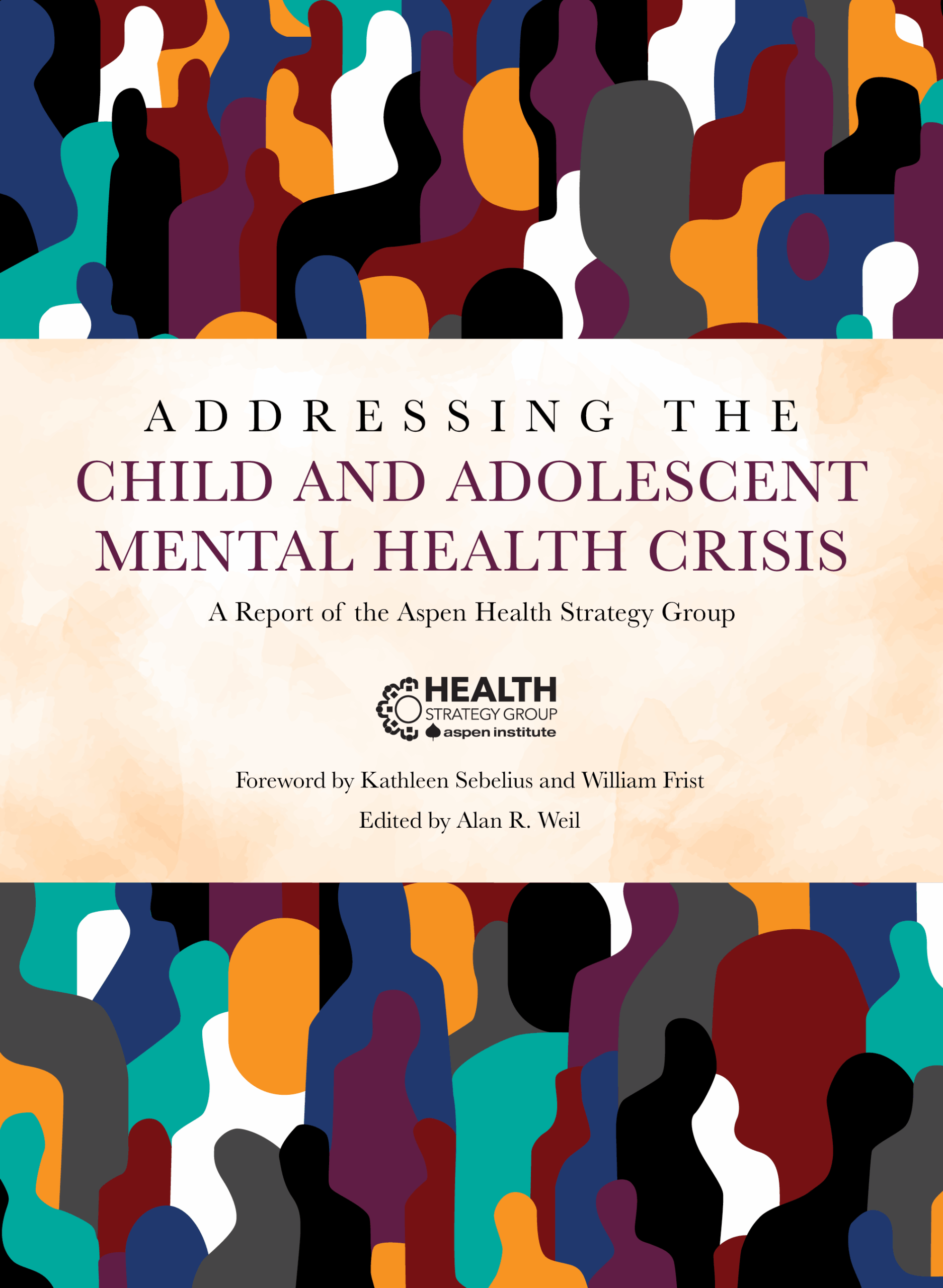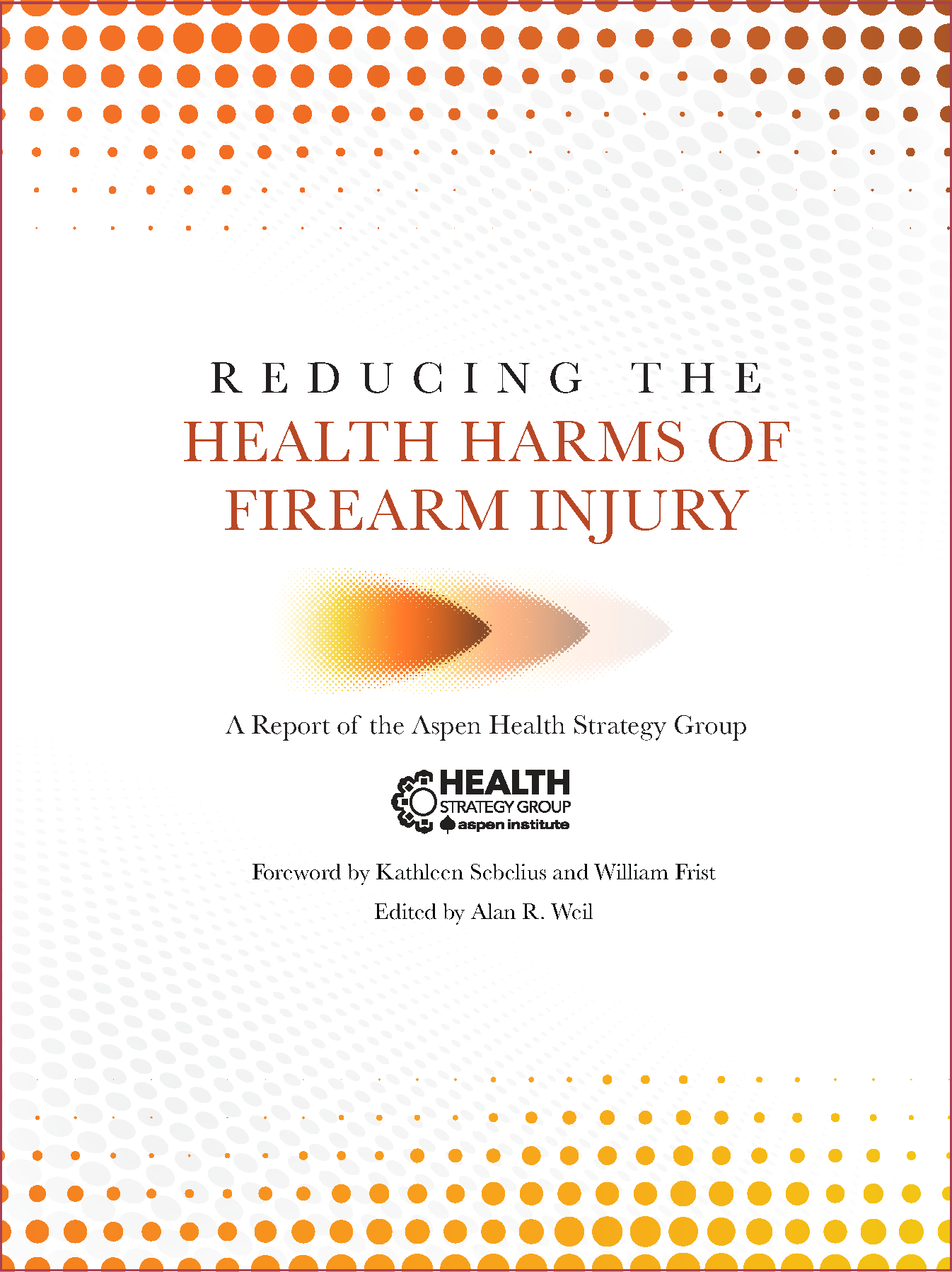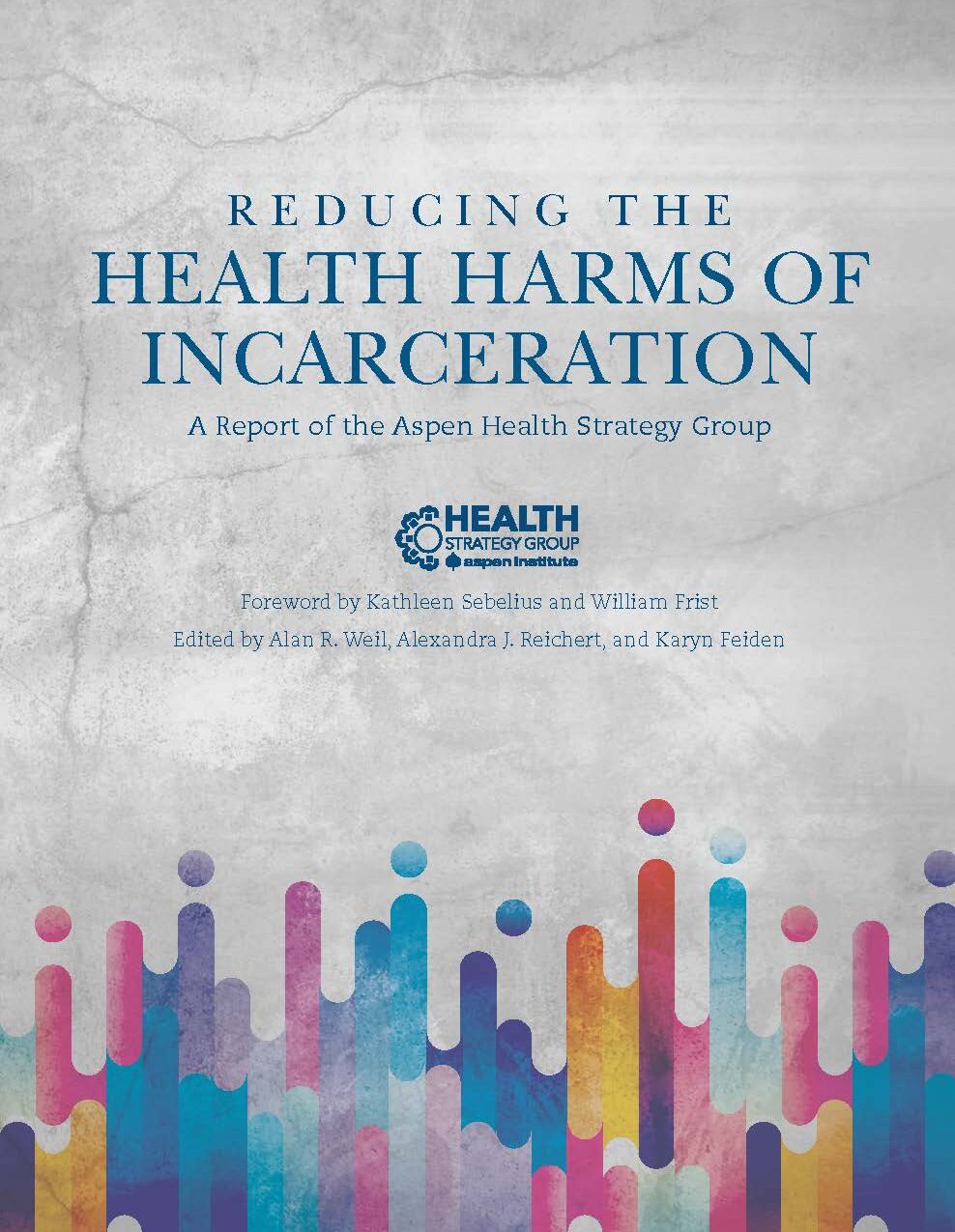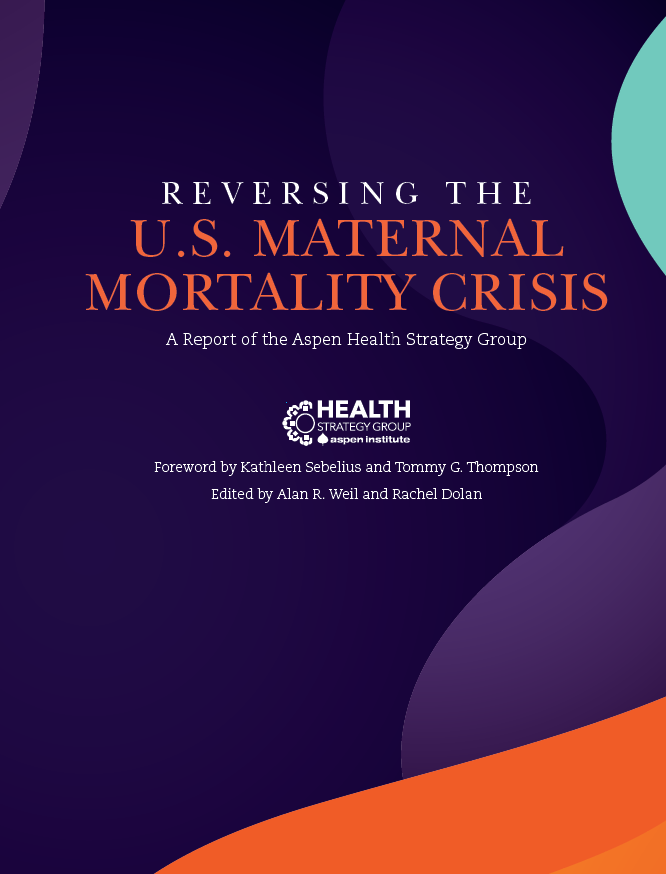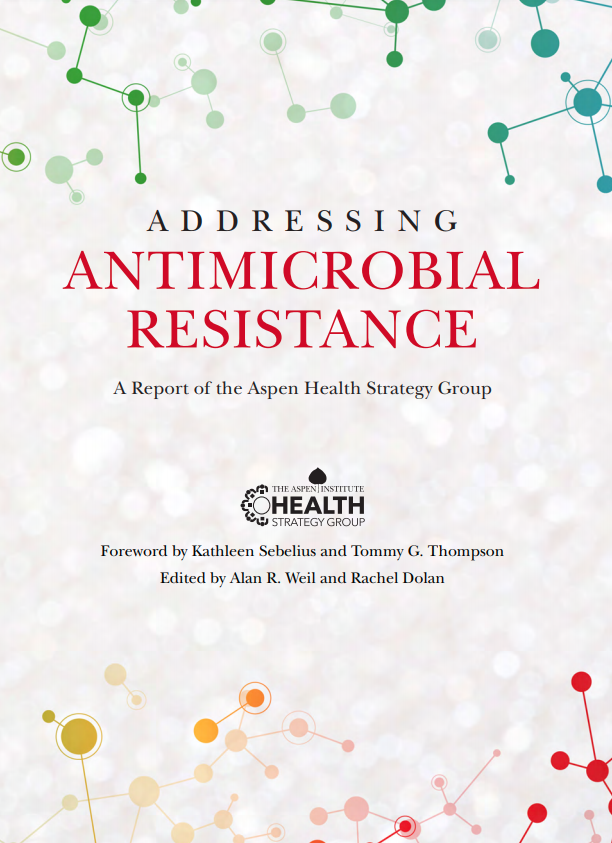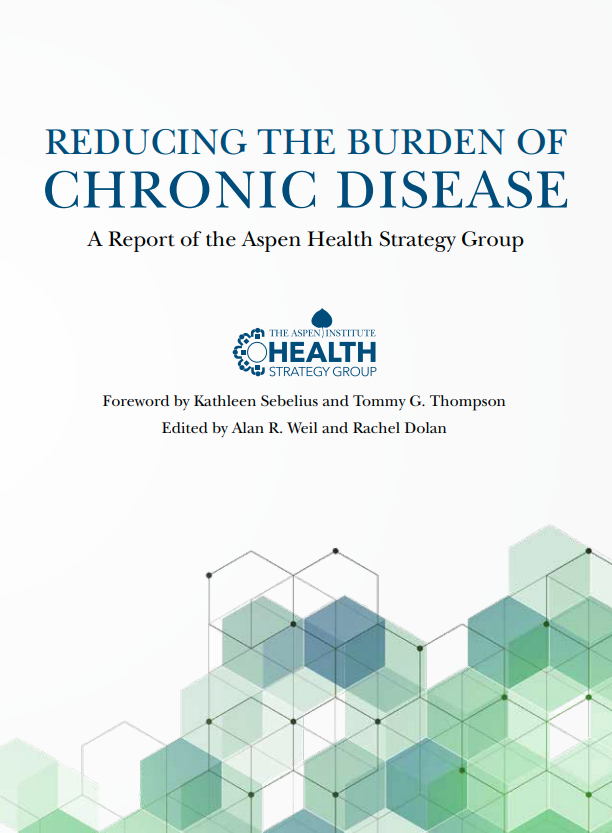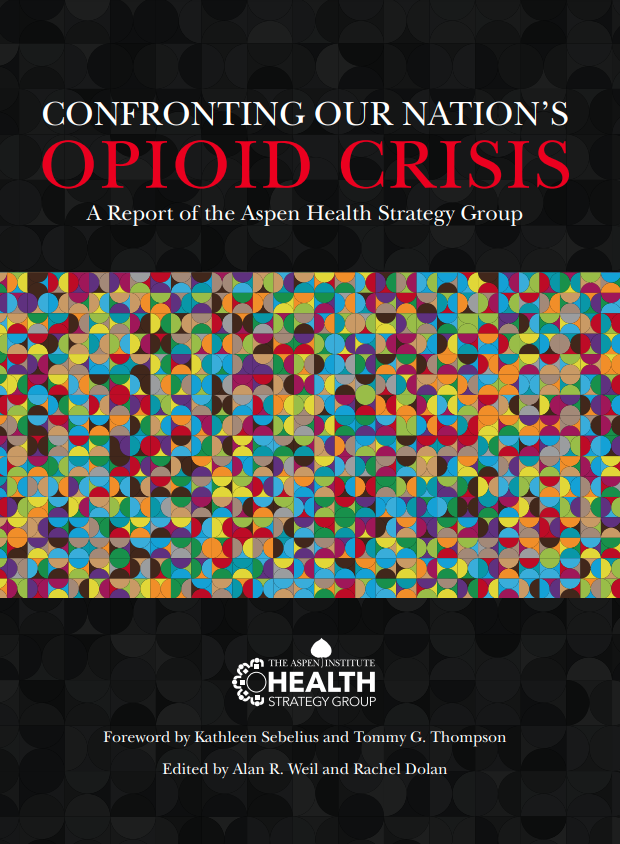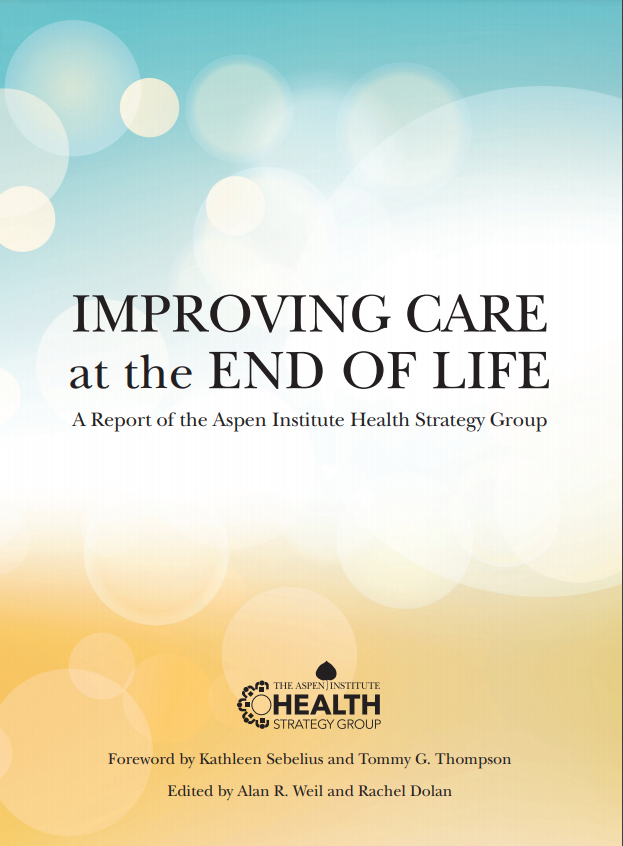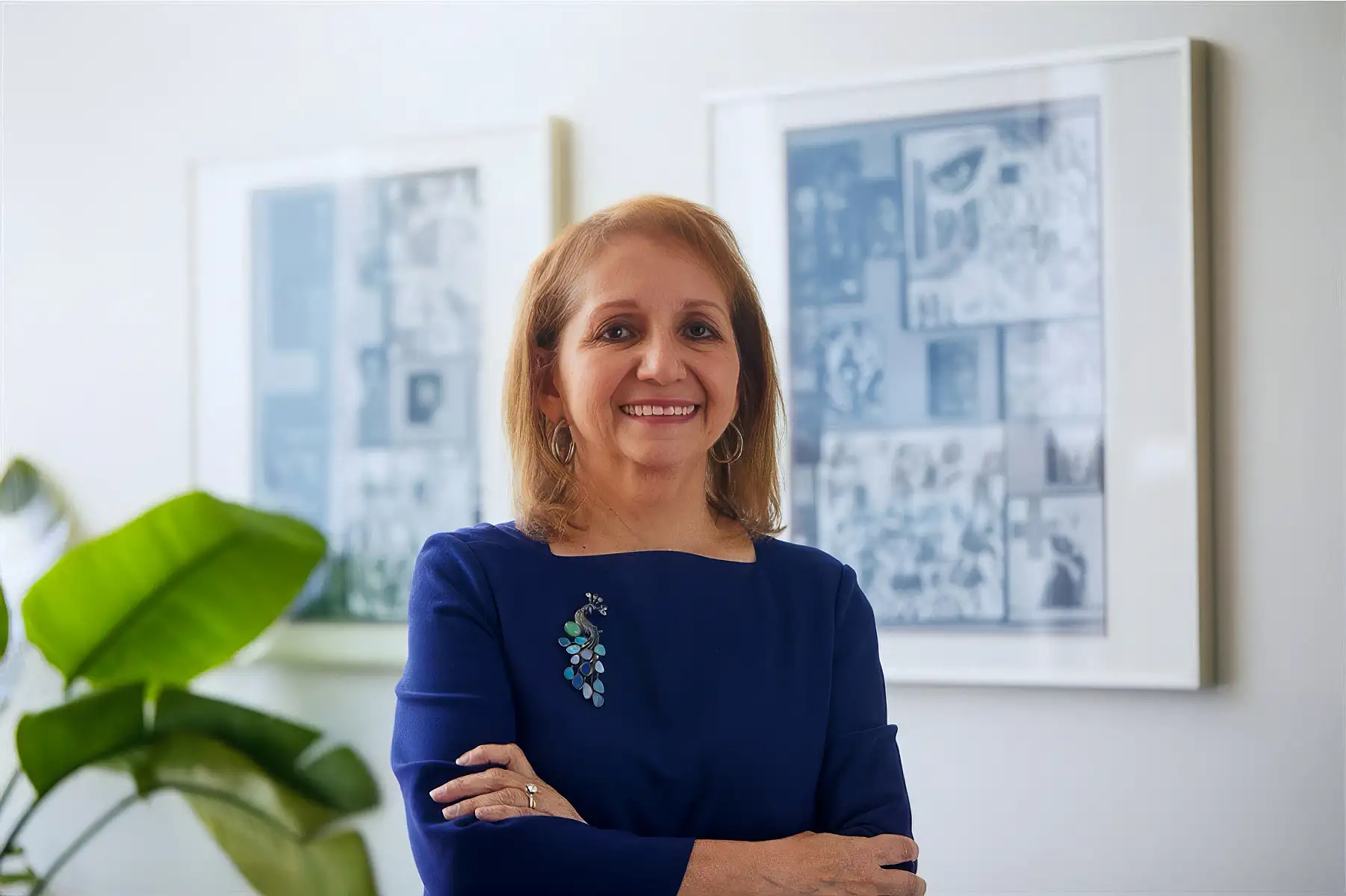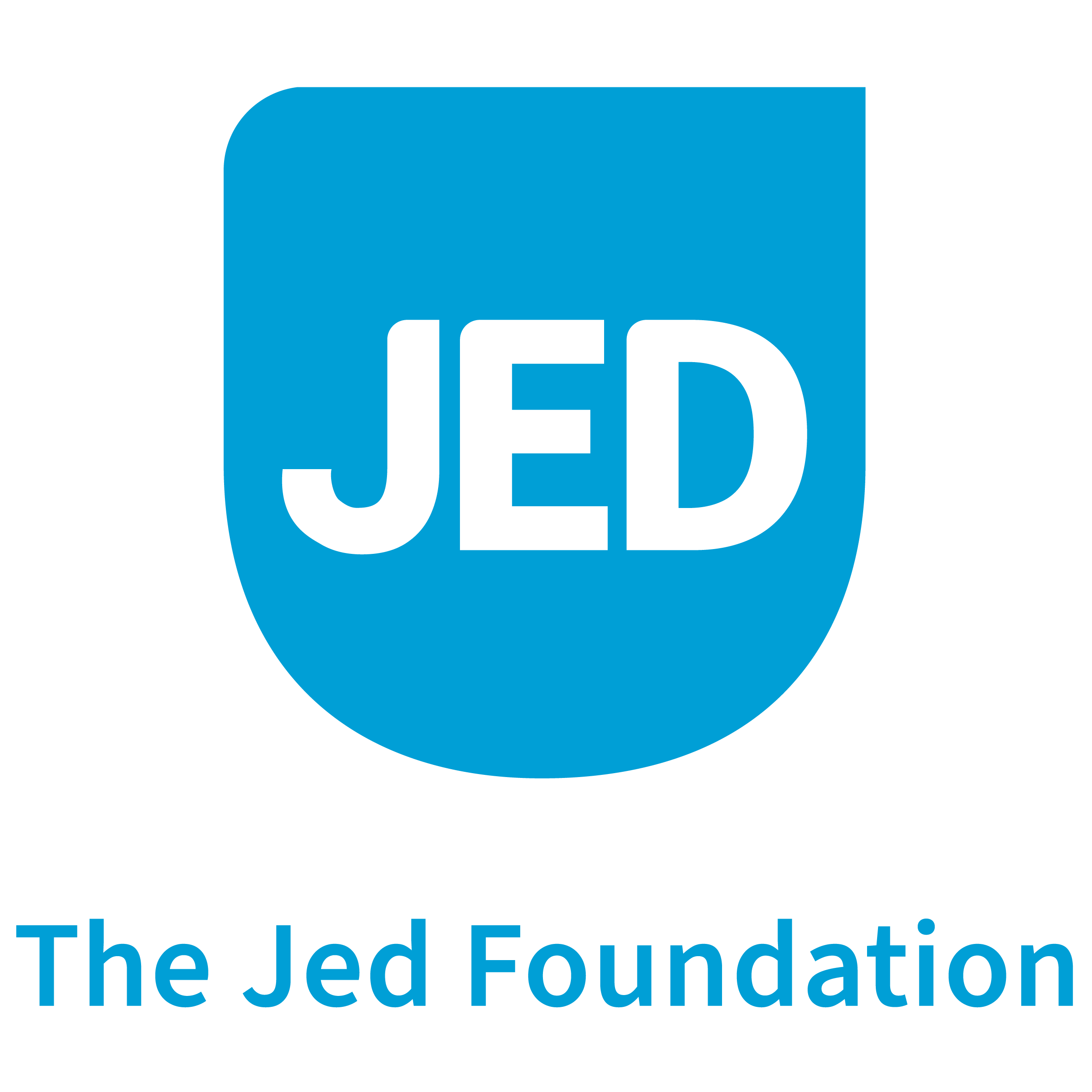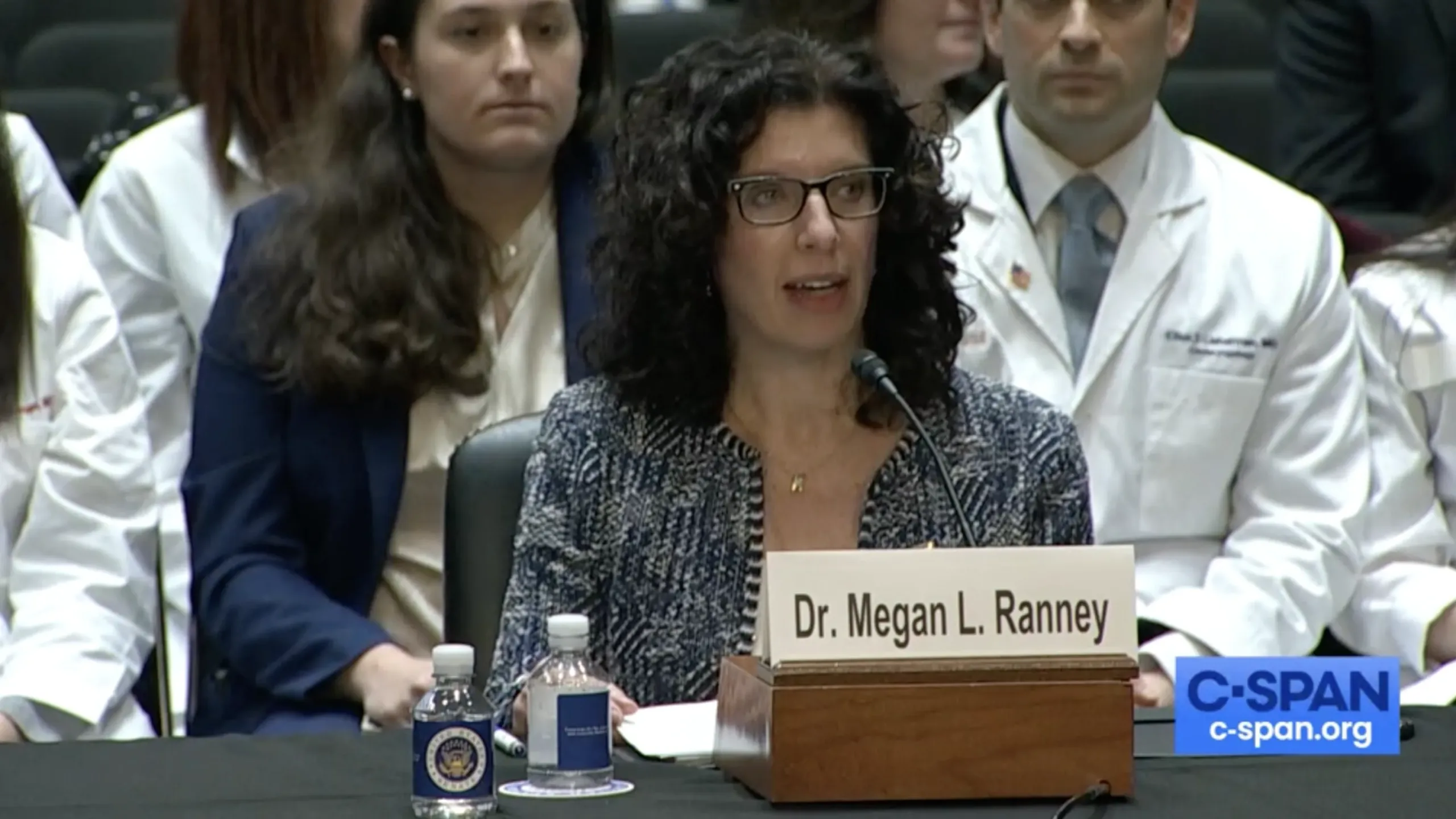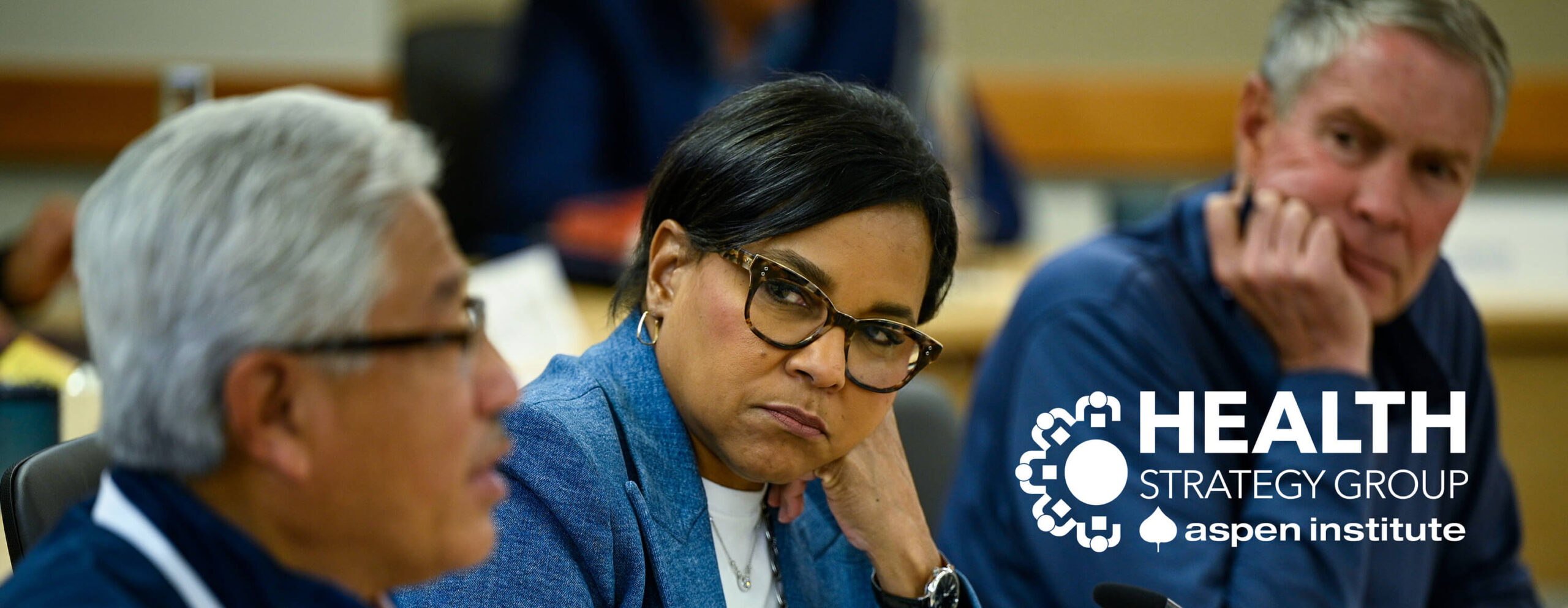
The Aspen Health Strategy Group (AHSG) promotes improvements in policy and practice by providing leadership on complex health issues. Its 19 influential members include CEOs and other high-level executives at major corporations, health systems, professional associations, and foundations, and innovative thinkers in academic settings. Cochairs are Kathleen Sebelius, 21st Secretary of Health and Human Services and former Governor of the State of Kansas, and William Frist, former Senator from Tennessee and former Senate Majority Leader.
Each year, the AHSG tackles a single health issue through a year-long, in-depth study. Informed by commissioned briefing papers, AHSG members convene at the Aspen Institute’s Colorado campus for two days of intensive learning and vigorous discussion and ultimately select five big ideas, accompanied by action steps, to drive meaningful change. Their findings and recommendations are packaged as an illustrated report that is widely disseminated to policymakers and other influencers. Past reports have covered firearm injury, data privacy, the health harms of incarceration, the US maternal mortality crisis, antimicrobial resistance, the burden of chronic disease, the nation’s opioid crisis, and end-of-life care.
Members
Co-chairs
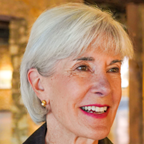
Kathleen Sebelius, MPA, is an expert on health policy, healthcare reform, human service delivery, and executive leadership. She served as Secretary of the US Department of Health and Human Services from 2009 to 2014, leading President Obama’s charge to pass and implement the Affordable Care Act. From 2003 to 2009, Sebelius served as governor of Kansas. She chairs the board of Humacyte Inc. and serves on the boards of Devoted Health Inc. ,Included Health Inc., and KFF, and is a senior advisor to the Dole Institute of Politics, the National Cannabis Roundtable, OutLeadership, and the Estee Lauder Foundation. During her career, Sebelius has led numerous efforts on early childhood initiatives, women’s health, tobacco control, mental health parity, HIV/AIDS, polio, preventing chronic diseases, and global health security.

William H. Frist, MD, is chair of the global board of The Nature Conservancy, former U.S. Senate majority leader, and former U.S. Senator from Tennessee. A heart and lung transplant surgeon and founder of the Vanderbilt Multi-Organ Transplant Center, Frist performed over 150 heart and lung transplants and authored over 100 peer-reviewed medical articles. During his tenure in the U.S. Senate (1995-2007), Frist played a key role in passing the 2003 Medicare Modernization Act, PEPFAR legislation providing HIV treatment to 25 million people globally, and the Senator Paul Simon Water for the Poor Act of 2005.
A founding partner of Frist Cressey Ventures and chairman of Cressey & Company’s Executives Council, Frist has helped build successful healthcare companies including Aspire Health, Monogram Health, and CareBridge. He speaks nationally on health policy, global health, and the intersection of climate, biodiversity, and human health. Frist serves on several high-profile committees, including the National Academy of Medicine’s initiatives on climate change and health sector decarbonization. He founded NashvilleHealth, SCORE, and Hope Through Healing Hands. With his wife Tracy, Frist established the Senator Bill and Tracy Frist Initiative for Planetary and Human Health within The Nature Conservancy.
Members
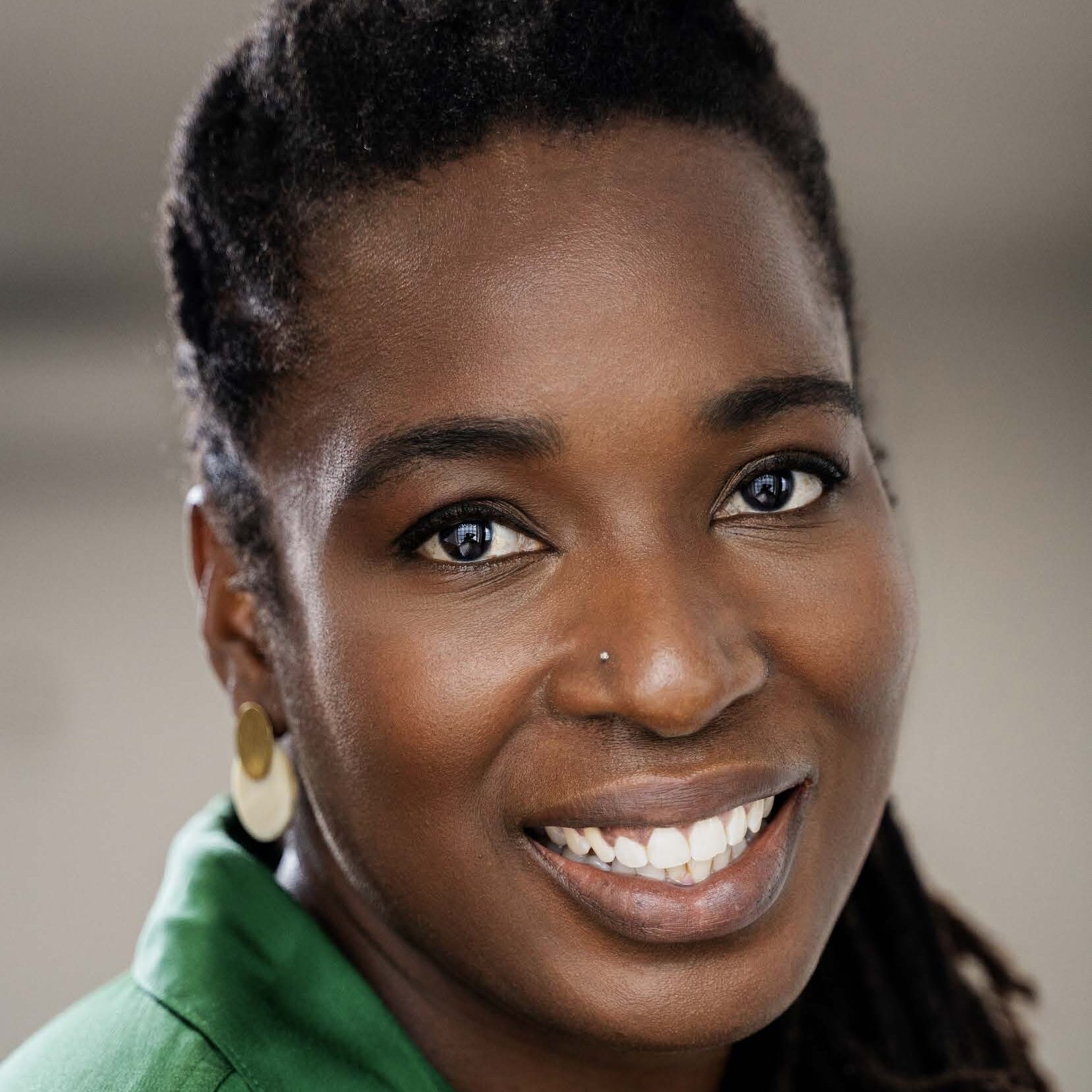
Toyin Ajayi, MD, MPhil, is co-founder and CEO of Cityblock, a value-based healthcare provider for Medicaid and dually eligible beneficiaries in underserved communities. Cityblock’s integrated and tech-enabled care model meets individuals where they are, delivering highly personalized medical care, behavioral healthcare, and social services. Prior to Cityblock, Ajayi was chief medical officer of Commonwealth Care Alliance, an integrated health plan and care delivery system for individuals eligible for both Medicare and and Medicaid.
Ajayi was elected to the National Academy of Medicine in 2024. She has also been named to Inc.’s Female Founders 500 list, TIME100 Next list, Modern Healthcare’s Top Women Leaders in Healthcare list, STAT’s STATUS List, and the Aspen Institute’s Henry Crown Fellows. Ajayi serves on the board of directors of Evolent Health, is a member of the Congressional Budget Office’s Health Panel of Health Advisers, and is co-founder of Coalition Partners, where she invests in and mentors early-stage entrepreneurs.

Richard Baron, MD, MACP, is the immediate past president and CEO of the American Board of Internal Medicine (ABIM) and the ABIM Foundation and formerly chaired ABIM and served on its board of trustees. Baron practiced general internal medicine and geriatrics for almost 30 years at Greenhouse Internists, PC, in Philadelphia, leaving the practice to serve as group director of Seamless Care Models at the Centers for Medicare and Medicaid Services Innovation Center. In that capacity he led efforts related to accountable care organizations and primary care. Until joining the federal government, Baron served on the board of the National Quality Forum and its Health Information Technology Advisory Committee and on the Standards Committee of the National Committee for Quality Assurance. Previously, he was chief medical officer of HealthPartners, a not-for-profit Medicaid HMO, and architect of the Best Clinical and Administrative Practices program, funded by the Robert Wood Johnson Foundation and the Center for Healthcare Strategies.

Richard Besser, MD, is the President and CEO of the Robert Wood Johnson Foundation (RWJF), America’s largest health philanthropy. Previously, he had a distinguished career at the Centers for Disease Control and Prevention and ABC News. RWJF is a leading national philanthropy dedicated to taking bold leaps to transform health in our lifetime. Partnering with communities, practitioners, and institutions to advance health equity through funding, advocacy, and evidence-building, RWJF envisions a future where health is no longer a privilege, but a right.
Besser, an advocate for healthy communities and economic inclusion, emphasizes the importance of accountable public health systems and racial justice. He played a significant role in prioritizing health equity during the COVID-19 pandemic. A National Academy of Medicine member, Besser serves on multiple boards, including Howard University’s Board of Trustees and the Independent Sector’s Board of Directors. He volunteered as a pediatrician for over 30 years in community clinics across the country and has been recognized with the Surgeon General’s Medallion for his public health contributions.
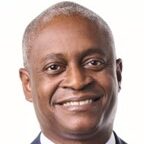
Raphael Bostic, PhD, is the 15th president and CEO of the Federal Reserve Bank of Atlanta, responsible for all the Bank’s activities, including monetary policy, bank supervision and regulation, and payment services. In addition, he serves on the Federal Reserve’s chief monetary policy body, the Federal Open Market Committee. Previously, Bostic served in the Obama Administration as the assistant secretary for policy development and research at the U.S. Department of Housing and Urban Development, leading a 150-person interdisciplinary team with broad expertise in housing, community development, and economic development. As a professor in the University of Southern California’s School of Policy, Planning, and Development, Bostic’s work has appeared in leading economic, public policy, and planning journals. He also served as the chair of the Governance, Management and Policy Process Department at the University of Southern California’s Bedrosian Center on Governance.
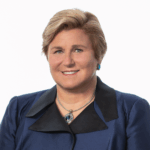
Gail Boudreaux serves as president and chief executive officer of Elevance Health, where she leads the company’s efforts to deliver simple, affordable, and accessible healthcare. Her career scaling multi-billion-dollar businesses in the healthcare industry spans more than 30 years, including six years as CEO of UnitedHealthcare, a division of UnitedHealth Group, and executive roles at Health Care Service Corporation and Aetna Inc. Today, she oversees Elevance Health’s more than 100,000 associates and serving 112 million people, as well as a growing portfolio of plans and subsidiaries that generated revenue of $175 billion in 2024.
Boudreaux has been named as one of Fortune’s “Most Powerful Women in Business” and featured by Forbes as one of the “100 Most Powerful Women in the World.” She has been selected by Modern Healthcare as one of the 100 Most Influential People in Healthcare, and she also received the Billie Jean King Leadership Award and the NCAA Theodore Roosevelt Award. Boudreaux currently serves on the board of directors for Target, the Central Indiana Corporate Partnership, Inc., the Blue Cross Blue Shield Association, the Business Council, the National Institute for Healthcare Management, and American Health Insurance Plans.

Dena Bravata, MD, MS, is a healthcare entrepreneur and executive. She co-founded Lyra Health (a global mental health technology and services company) and served as its chief medical officer. She is the co-founder of Solara Health (an AI company providing digital tools for psychotherapy, palliative care, and quality assessment). Previously, Bravata was the founding chief medical officer and head of products at Castlight Health and an internal medicine attending and health services researcher at Stanford University and the Veteran’s Administration Palo Alto Healthcare System. Bravata was an assistant public health officer for Santa Clara County and, in 2021, received a national service award from the White House and CDC for her work on the pandemic response and Vaccines.gov.

Rosalind “Roz” Brewer is interim president and chair emerita at Spelman College. Brewer recently returned to her alma mater to lead Spelman through a pivotal transition with a vision that combines institutional stability with strategic advancement while building on the college’s legacy of excellence to prepare students for an evolving global landscape.
Brewer has been repeatedly recognized by Fortune and Forbes as among their “Most Powerful Women in Business.” She recently served as president and CEO of Walgreens Boots Alliance, Inc., a global leader in retail pharmacy and healthcare, where she led a transformation focused on systems innovation and expanding access to essential healthcare services. Brewer was also pivotal in setting the company’s strategic direction and navigating the complexities of the healthcare landscape during the COVID-19 pandemic. She was previously COO of Starbucks, was president and CEO of Sam’s Club, and held a variety of leadership positions at Kimberly-Clark.
Brewer serves on the boards of United Airlines, the KIPP Foundation for Public Chartered Schools, and the Smithsonian’s National Museum of African American History and Culture. As a limited partner in her hometown team, the Atlanta Falcons, Brewer is one of only three Black women with an ownership stake in an NFL team.

Eduardo Conrado, MBA, is president of Ascension, one of the nation’s leading non-profit and Catholic health systems with 131 hospitals serving communities in 18 states and the District of Columbia. He is responsible for setting system strategy, leading day-to-day operations, and driving Ascension’s overall success through innovation across the continuum of care. Conrado joined Ascension in 2018 after serving on the Ascension board of directors from 2014 to 2018. He began his current role as president in February 2023. Prior to Ascension, he had a 26-year career with Motorola, later Motorola Solutions. Conrado serves as board member for the Catholic Health Association of the United States as well as on the board of directors for Southwest Airlines and ArcBest Corporation.

Toby Cosgrove, MD, is executive advisor at the Cleveland Clinic, working with leadership on strategies for national and international growth. Previously, he was president and CEO of the Cleveland Clinic, where he reorganized services, improved outcomes and patient experience, and strengthened the $8 billion organization’s financing, guiding it to a #2 hospital ranking by U.S. News & World Report. Cosgrove is also strategic advisor to Care Centrix, senior advisor of Innova Health Partners, and a board member at Cleveland Clinic Abu Dhabi, American Well, Hims & Hers, and View. He is frequently asked by national and international media to comment on health issues. A member of the National Academy of Medicine and a fellow of the National Academy of Inventors, Cosgrove was named a Fortune “Businessperson of the Year” and has been asked by three successive US presidents to consult on healthcare issues.

Deborah DiSanzo, MBA, is an innovative leader with more than 30 years’ experience at the intersection of healthcare and technology. As president of Best Buy Health for Best Buy Co., Inc., DiSanzo is responsible for the company’s health technology business. Best Buy Health enables care at home for everyone across the continuum of care based on Best Buy’s core competencies. Integrated technology, personalized caring centers and technical services, logistics, and supply chain, create the platform that enables care at home from aging in place to hospital at home to chronic disease management. Her business includes Lively!, the brand of connected health and personal emergency response services for the aging population, which Best Buy acquired in 2018, as well as Current Health, a leading care-at-home technology platform, which Best Buy acquired in 2021.
Prior to Best Buy, DiSanzo was general manager of IBM Watson Health and earlier was CEO of Philips Healthcare. She teaches AI in Health and Managing Information in Health Care at the Harvard T.H. Chan School of Public Health and serves on the board of AstraZeneca.
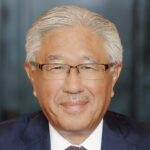
Victor Dzau, MD, is president of the National Academy of Medicine (NAM), vice chair of the National Research Council, chancellor emeritus of Duke University, and past CEO of the Duke Health System. Previously, he was professor and chair of medicine at both Harvard and Stanford Universities. Recognized globally as a scientist, administrator, and leader, Dzau’s seminal research in cardiovascular medicine laid the foundation for the class of lifesaving cardiac drugs known as ACE inhibitors. He also pioneered gene therapy for vascular disease.
A leader in global health, Dzau launched the Duke-NUS Medical School in Singapore, founded the Division of Global Health Equity at Harvard, and chairs the International Advisory Board of McGill University’s School of Population and Global Health. He also serves on the WHO and World Bank’s Global Preparedness Monitoring Board, co-chairs the World Economic Forum’s Regional Vaccine Manufacturing Collaborative, and co-chairs the Science and Technology Expert Panel for the Independent Pandemic Preparedness Secretariat. He also now co-leads the G20 Panel on Global Health Security Financing.
The National Academies have led major efforts to advance rural and community health, including workshops on Population Health in Rural America, Achieving Rural Health Equity and Well-Being, and Tackling Structural Inequities in Rural Communities. They have also conducted studies on Implementing High-Quality Primary Care, The Future of Nursing, and Population Health in Challenging Times. Under Dzau’s leadership, NAM has launched initiatives such as the Culture of Health Program, the Collaborative on Substance Use and Opioid Crises, and the Climate Community Network, among others.

Judy Faulkner, MS, is CEO and founder of Epic, the leading electronic medical health records platform. She began Epic in 1979 in the basement of an apartment house with $70,000 in start-up money and two half-time assistants. Epic has grown by its bootstraps, without venture capital or a public offering. After teaching computer science for several years, Faulkner worked as a software developer, creating one of the first databases organized around the patient. A member of the National Academy of Medicine’s Leadership Roundtable and the Scottsdale Institute, she has pledged that 99 percent of her assets will go to philanthropy.
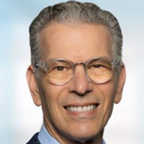
As chairman of Oracle Health, David Feinberg, MD, MBA, is committed to making healthcare more accessible, affordable, and equitable. His work advances thought leadership and strategy to unleash the healing power of data through an open and connected healthcare ecosystem. Feinberg had previously been president and CEO of Cerner, now Oracle Health.
A pediatric psychiatrist, Feinberg also served as president and CEO of both UCLA Health and Geisinger Health. His focus on patient experience increased UCLA’s patient satisfaction scores from the 28th to the 99th percentile. At Geisinger, Feinberg led a complex turnaround that made the company one of the nation’s most innovative healthcare providers, including developing a first-of-its-kind clinical program that made DNA sequencing routine. Earlier, as leader of Google Health, Feinberg helped put the company at the forefront of using artificial intelligence and mobile platforms to improve healthcare and—in partnership with Ascension Health—produced Care Studio, a tool that organizes patient records for healthcare clinicians.

Harvey Fineberg, MD, PhD, is president of the Gordon and Betty Moore Foundation. He previously served as president of the National Academy of Medicine (then called the Institute of Medicine), provost of Harvard University, and dean of the Harvard T.H. Chan School of Public Health. His academic career was devoted mostly to health policy and medical decision-making, with research focused on global health, assessing medical technology, evaluating vaccines, and disseminating medical innovations.
Fineberg is currently board chair of the Science Philanthropy Alliance, chair of the Peterson Center on Healthcare’s advisory board, and a member of the editorial board of the New England Journal of Medicine. He previously chaired the boards of the Carnegie Endowment for International Peace and the William and Flora Hewlett Foundation and helped found the Society for Medical Decision Making, where he served as president.

Helene D. Gayle, MD, MPH, began serving as the 11th president of Spelman College on July 1, 2022. A pediatrician and public health physician with expertise in economic development, humanitarian, and health issues, she previously worked in leadership roles at the Centers for Disease Control and Prevention and the Bill & Melinda Gates Foundation and was the president and CEO of the international humanitarian organization, CARE, and the Chicago Community Trust. Gayle serves on boards of public companies and nonprofit organizations, including Organon, the Bill & Melinda Gates Foundation, the Brookings Institution, the Center for Strategic and International Studies, and New America. She previously served on the boards of the Coca Cola Company, Palo Alto Networks, and the Rockefeller Foundation. She is a member of the American Academy of Arts and Sciences, National Academy of Medicine, and the Council on Foreign Relations, among others.

Ai-jen Poo is president of the National Domestic Workers Alliance, executive director of Caring Across Generations, and a trustee of the Ford Foundation. Poo is an next-generation labor leader, award-winning organizer, author, and leading voice in the women’s movement. She recently served as a commissioner on President Biden’s Advisory Commission on Asian Americans, Native Hawaiians, and Pacific Islanders.
A nationally recognized expert on the care economy, Poo is the author of The Age of Dignity: Preparing for the Elder Boom in a Changing America. She has been recognized among Fortune’s “World’s 50 Greatest Leaders” and TIME’s “100 Most Influential People” and received a MacArthur Fellowship. Most recently, she received the Gleitsman Citizen Activist Award from the Center for Public Leadership at Harvard’s Kennedy School. Poo has been a featured speaker at the Aspen Ideas Festival, Cannes Lions International Festival of Creativity, Milken Institute Global Conference, TEDWomen, and the Skoll World Forum. She has made appearances on PBS, Nightline, MSNBC, and CBS and has been a guest on popular podcasts such as “On Being with Krista Tippett,” “We Can Do Hard Things,” and “The Ezra Klein Show.”

David J. Skorton, MD, is president and CEO of the Association of American Medical Colleges (AAMC). Shortly after his arrival in 2019, he oversaw a comprehensive strategic planning process that established a new mission and vision for the AAMC and introduced action plans to align the AAMC’s organizational resources to tackle the most intractable challenges in health. The strategic plan guides the AAMC in leading and serving medical schools and academic health systems around the mission areas of education, clinical care, research, and community collaboration. Skorton’s main focus is on improving the health of people everywhere, including access to care for all.
Skorton previously served as the 13th secretary of the Smithsonian Institution, where he oversaw 19 museums, 21 libraries, the National Zoo, and numerous research centers and education programs. Earlier, he was president of Cornell University (2006-2015) and the University of Iowa (2003-2006), where he also served on the faculty for 26 years and co-founded and co-directed the University of Iowa Adolescent and Adult Congenital Heart Disease Clinic. A pioneer of cardiac imaging and computer processing techniques, Skorton was a contributor to and editor-in-chief of a major text on cardiac imaging.
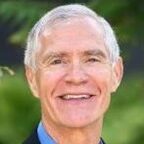
David J. Skorton, MD, is president and CEO of the Association of American Medical Colleges (AAMC). Shortly after his arrival in 2019, he oversaw a comprehensive strategic planning process that established a new mission and vision for the AAMC and introduced action plans to align the AAMC’s organizational resources to tackle the most intractable challenges in health. The strategic plan guides the AAMC in leading and serving medical schools and academic health systems around the mission areas of education, clinical care, research, and community collaboration. Skorton’s main focus is on improving the health of people everywhere, including access to care for all.
Skorton previously served as the 13th secretary of the Smithsonian Institution, where he oversaw 19 museums, 21 libraries, the National Zoo, and numerous research centers and education programs. Earlier, he was president of Cornell University (2006-2015) and the University of Iowa (2003-2006), where he also served on the faculty for 26 years and co-founded and co-directed the University of Iowa Adolescent and Adult Congenital Heart Disease Clinic. A pioneer of cardiac imaging and computer processing techniques, Skorton was a contributor to and editor-in-chief of a major text on cardiac imaging.

Antonia M. Villarruel, PhD, RN, FAAN, is the Margaret Bond Simon Dean of Nursing at the University of Pennsylvania School of Nursing and director of the school’s WHO Collaborating Center for Nursing and Midwifery Leadership. As a bilingual and bicultural researcher, Villarruel has extensive research and practice experience with Latino populations, health promotion, and health equity and has held many leadership positions in nursing, government, and healthcare.
Villarruel is an elected fellow of the American Academy of Nursing and member of the National Academy of Medicine and the College of Physicians of Philadelphia. She is chair of the National Academy of Medicine Culture of Health Program Advisory Committee, co-chaired the strategic advisory council of the AARP/RWJF Future of Nursing Campaign for Action, and is former vice-chair of the board of regents of the Uniformed Services University of the Health Sciences. Her numerous honors and awards include the 2021 Health Care Leader Award from the American Academy of Nursing, the Sigma Theta Tau International Nurse Researcher Hall of Fame Award, the Globy Award for Educational Leadership from the Global Philadelphia Association, the Ohtli Award from the government of Mexico, and the 2024 Above and Beyond Women Award from City & State Pennsylvania Magazine. Villarruel was named to Modern Healthcare’s 50 Most Influential Clinical Executives Class of 2024.
Ex-Officio Members

Alex M. Azar II, Chair, Seraphim Strategies, LLC; 24th US Secretary of Health and Human Services (2018-2021)
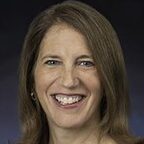
Sylvia Mathews Burwell, 22nd US Secretary of Health and Human Services (2014-2017)
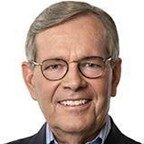
Michael O. Leavitt, Founder and Chairman, Leavitt Partners; 20th US Secretary of Health and Human Services (2005-2009)

Tommy G. Thompson, 19th US Secretary of Health and Human Services (2001-2005), AHSG Co-chair (2015-2021)

Donna Shalala, Trustee Professor of Political Science and Health Policy, University of Miami; 18th US Secretary of Health and Human Services (1993-2001)
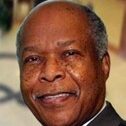
Louis Sullivan, Chair, Sullivan Alliance to Transform American’s Health Professions, Association of Academic Health Centers; 17th US Secretary of Health and Human Services (1989-1993)
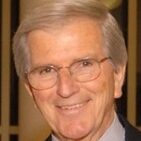
David Mathews, 11th US Secretary of Health, Education and Welfare (1975-1977)
Director
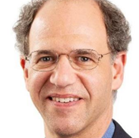
Alan Weil, JD, MPP, is senior vice president, public policy and director of the AARP Public Policy Institute (PPI), where he oversees public policy research across PPI’s issue areas of financial security, health security, and family, home and community. The Public Policy Institute is AARP’s in-house think tank and serves as a trusted resource that advances innovative, evidence-based, and actionable solutions that empower people to choose how they live as they age. Before joining AARP, Weil served ten years as editor-in-chief of Health Affairs, the nation’s premier peer-reviewed journal at the intersection of health, health care, and policy. Previously Weil was the executive director of the National Academy for State Health Policy (NASHP), director of the Urban Institute’s Assessing the New Federalism project, and executive director of the Colorado Department of Health Care Policy and Financing. He is an elected member of the National Academy of Medicine and has been a member of the Medicaid & CHIP Payment & Access Commission (MACPAC), a trustee of the Consumer Health Foundation (now if, a foundation for radical possibility), a member of the Kaiser Commission on Medicaid & the Uninsured, a member of the Commonwealth Fund Commission on a High Performance Health System, and a member of the Institute of Medicine’s Board on Health Care Services.
